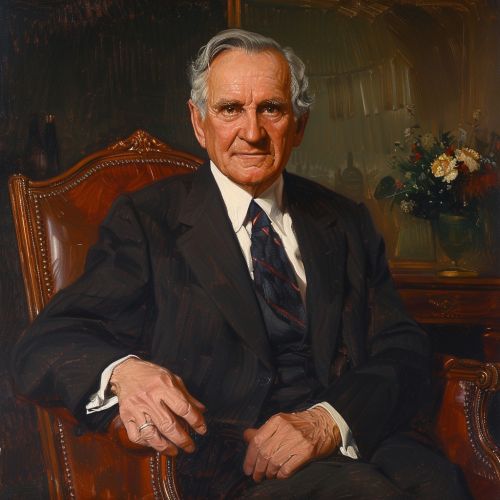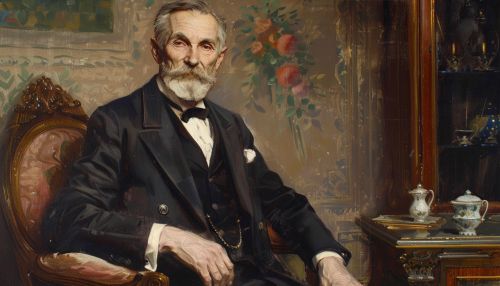Vladimir Arnold
Early Life and Education
Vladimir Igorevich Arnold was born on June 12, 1937, in Odessa, then part of the Soviet Union. His father, Igor Vladimirovich Arnold, was a mathematician, and his mother, Nina Alexandrovna Arnold, was a historian. From an early age, Arnold displayed a prodigious talent for mathematics. He attended the Moscow State University, where he studied under the supervision of Andrey Kolmogorov, one of the most prominent mathematicians of the 20th century. Arnold completed his Ph.D. in 1963 with a dissertation on the representation of continuous functions of three variables by superpositions of continuous functions of two variables.
Contributions to Mathematics
KAM Theory
One of Arnold's most significant contributions to mathematics is the Kolmogorov-Arnold-Moser theorem, commonly known as KAM theory. This theorem addresses the stability of quasi-periodic motions in Hamiltonian systems. In essence, KAM theory demonstrates that under certain conditions, the quasi-periodic orbits of a Hamiltonian system remain stable even when the system is slightly perturbed. This result has profound implications for the study of dynamical systems and celestial mechanics.
Catastrophe Theory
Arnold also made substantial contributions to catastrophe theory, a branch of bifurcation theory in the study of dynamical systems. Catastrophe theory examines how small changes in circumstances can lead to sudden and dramatic changes in behavior. Arnold's work in this area provided a rigorous mathematical framework for understanding phenomena such as the folding of leaves, the breaking of waves, and other natural occurrences.
Singularity Theory
In the field of singularity theory, Arnold's work has been pivotal. Singularity theory studies spaces that are not smooth, such as points where a mathematical object is not well-behaved. Arnold classified singularities of differentiable maps and provided a comprehensive theory that has applications in various fields, including algebraic geometry and differential topology.
Arnold Conjecture
The Arnold conjecture is another notable contribution. This conjecture, which is part of symplectic geometry, posits that the number of fixed points of a Hamiltonian symplectomorphism is at least equal to the sum of the Betti numbers of the underlying manifold. The conjecture has inspired a wealth of research and has been proven in several special cases.
Arnold's Work on Fluid Dynamics
Arnold's contributions to fluid dynamics are also noteworthy. He developed a geometric approach to the study of incompressible flows, known as Arnold's structure theorem. This theorem provides a deep understanding of the stability of fluid flows and has applications in both theoretical and applied fluid dynamics.


Teaching and Mentorship
Arnold was not only a prolific researcher but also a dedicated teacher and mentor. He held professorships at several prestigious institutions, including the Steklov Institute of Mathematics and École Polytechnique. Arnold's teaching style was known for its clarity and rigor, and he inspired numerous students who went on to become prominent mathematicians in their own right.
Publications and Books
Arnold authored several influential books and papers. His book "Mathematical Methods of Classical Mechanics" is considered a seminal text in the field and has been widely used in graduate courses. Other notable works include "Ordinary Differential Equations," "Catastrophe Theory," and "Singularities of Differentiable Maps."
Awards and Honors
Throughout his career, Arnold received numerous awards and honors. He was elected a member of several academies, including the Russian Academy of Sciences and the French Academy of Sciences. In 2001, he was awarded the Wolf Prize in Mathematics, one of the most prestigious awards in the field. Arnold also received the Lomonosov Gold Medal and the State Prize of the Russian Federation.
Personal Life
Arnold was known for his wide-ranging interests beyond mathematics. He was an avid mountain climber and enjoyed exploring the natural world. Arnold's curiosity and passion for learning extended to many areas, including history, literature, and the arts.
Legacy
Vladimir Arnold passed away on June 3, 2010, but his legacy continues to influence the field of mathematics. His work has had a lasting impact on various branches of mathematics and has inspired countless researchers. Arnold's contributions to KAM theory, catastrophe theory, singularity theory, and fluid dynamics remain foundational, and his books and papers continue to be essential reading for mathematicians worldwide.
